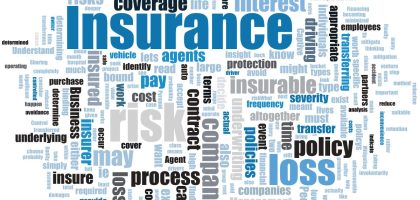Homepage » Health Insurance » Health Insurance Card
Health Insurance Card
What Is a Health Insurance Card? How It Works, Benefits
Health insurance is something which we all need to have to ensure we get the best treatment at the time of an emergency. When you talk of health insurance, you hear about a health insurance card. A health insurancе card is a crucial componеnt of your health insurancе plan, serving as proof of your coverage and providing essential information to health providers. Hеrе’s a dеtailеd ovеrviеw of what a health insurancе card is, how it works, and its bеnеfits.
What Is a Health Insurance Card?
A health insurance card is a physical or digital identification card issued by your health insurance provider. It typically includes your name, policy or member number, and essential information related to your health insurance plan. The card is designed to be presented whenever you seek medical services or purchase prescription medications. It serves several important purposes:
1. Proof of Insurance Coverage: The card serves as evidence that you have a valid health insurance plan, which is often required when you receive medical care.
2. Identification: Your health insurance card contains your personal details, such as your name and date of birth, helping healthcare providers correctly identify you and access your health records.
3. Policy Information: It provides vital policy details, including your policy or member number, group number (if applicable), and the effective dates of your coverage.
4. Contact Information: The card usually includes contact information for your insurance provider, such as a customer service number, making it easier for you to get in touch with them for inquiries or claims.
How Does It Work?
When you visit a healthcare provider or pharmacy, you’ll be asked to present your health insurance card. Here’s how the process typically works:
1. Registration: During your first visit to a healthcare facility, you’ll provide your health insurance card at the registration desk. The staff will use the information on the card to set up your patient file.
2. Verification: The provider will verify your coverage by contacting your insurance company, either electronically or by submitting a claim.
3. Billing: If the services are covered by your plan, the healthcare provider will bill your insurance company directly. You may be responsible for copayments, deductibles, or any portion of the cost not covered by your plan.
4. Explanation of Benefits (EOB): After processing the claim, your insurance company will send you an Explanation of Benefits (EOB) statement detailing the services provided, the amount billed, what your plan covers, and what you owe, if anything.
Benefits of a Health Insurance Card:
Listed below are the benefits of having a health insurance card.
1. Access to Care: Having a health insurance card ensures that you can access necessary medical care when needed.
2. Correct Identification: It helps healthcare providers accurately identify you and access your medical history.
3. Convenience: The card streamlines the billing process, making it easier for healthcare providers to bill your insurance company directly.
4. Coverage Verification: It serves as a convenient way to verify your insurance coverage, reducing administrative hassles for both you and the healthcare provider.
5. Records and Claims Processing: The information on the card is vital for processing insurance claims, ensuring you receive the benefits you’re entitled to.
In summary, a health insurance card is a fundamental tool that simplifies the healthcare process, provides access to medical services, and ensures accurate billing and claims processing within the framework of your health insurance plan. It’s essential to keep your card up to date and readily accessible for any medical-related transactions.
What is a Health Insurance Plan?
A health insurance plan is a contract or agreement between an individual and an insurance provider that offers financial coverage for a wide range of medical expenses. These plans are designed to help individuals or families manage the costs associated with healthcare services and medical treatments. Here are key components and aspects of a health insurance plan:
1. Premium: This is the regular payment made by the policyholder to the insurance company, typically on a monthly basis. It’s the cost of maintaining the insurance coverage.
2. Deductible: The amount the policyholder needs to pay out of their own pocket before the insurance plan begins to cover medical expenses is known as the deductible. For example, if your plan has a Rs.1,00,000 deductible, you’ll have to pay the first Rs. 1,00,000 of covered expenses before the insurance pays anything.
3. Copayments and Coinsurance: These are the aspects of a health insurance plan where the insured and the insurer share cost. Copayments are pre-decided amounts you pay for services specified in the policy (e.g. Rs. 500 for a doctor’s visit), while coinsurance is part of the cost you need to share with the insurer (e.g. you pay 20% of the bill).
4. Network: Health insurance plans often have a network of doctors, clinics and hospitals. Visiting in-network providers can result in lower out-of-pocket costs, while out-of-network providers may cost more or have reduced coverage.
5. Covered Services: Health insurance plans define the medical services, treatments, and procedures they cover. Commonly covered services include doctor’s visits, hospital stays, prescription medications, preventive care, and more.
6. Exclusions: These are services or treatments not covered by the insurance plan. It’s important to be aware of what is not covered to avoid unexpected expenses.
7. Maximum Out-of-Pocket Costs: Health insurance plans often have a maximum limit on the total amount you have to pay out of your pocket in a given year. Once you reach this limit, the insurance covers 100% of covered expenses.
8. Benefits: Health insurance provides financial benefits by covering, partially or fully, the costs of medical care. This can help protect policyholders from the potentially high costs of unexpected illnesses or injuries.
9. Policy Terms: Health insurance plans have specific terms and conditions that policyholders must adhere to. These include rules on how to file claims, use in-network providers, and maintain coverage.
10. Open Enrollment: Many people get health insurance through their employers, and open enrollment is the designated period during which you can sign up for or make changes to your health insurance plan. For those not covered by employer-sponsored plans, there are also open enrollment periods in the individual marketplaces.
11. Types of Plans: In India, health insurancе plans come in various types to cater to divеrsе nееds. Thеsе includе Individual health Insurancе, Family Floatеr Plans, Group health Insurancе for еmployеrs, Sеnior Citizеn health Insurancе, and Disеasе-Spеcific Plans. Each plan offers different coverage options, making it еssеntial to choose one that aligns with your unique health care requirements.
Health insurance plans aim to provide financial security and access to healthcare services, reducing the burden of medical expenses on individuals and families. The specific terms and coverage options can vary significantly depending on the insurance provider and the plan chosen. It is essential to carefully review and understand the details of your health insurance plan to make informed decisions about your healthcare.
What is a Health Card in Health Insurance?
A health card in the context of health insurance is typically the same as a health insurance card. It’s a physical or digital identification card issued by your health insurance provider, and it serves several important purposes:
1. Proof of Insurance Coverage: The health card serves as evidence that you have a valid health insurance plan. It is often required when you seek medical care or services.
2. Identification: Your health insurance card contains your personal details, such as your name and date of birth. This information helps healthcare providers correctly identify you and access your health records.
3. Policy Information: The card includes vital policy details, such as your policy or member number, group number (if applicable), and the effective dates of your coverage.
4. Contact Information: It usually provides contact information for your insurance provider, such as a customer service number. This makes it easier for you to get in touch with them for inquiries or claims.
Essentially, a health card is a crucial tool in the healthcare system that simplifies the process of accessing medical care, verifying coverage, and ensuring accurate billing and claims processing within the framework of your health insurance plan. It’s essential to keep your health card up to date and readily accessible for any medical-related transactions.
Do You Need a Health Insurance Card
Yes, having a health insurance card is highly recommended and often necessary. Here’s why:
1. Proof of Coverage: Your health insurance card serves as proof that you have a valid health insurance plan. It is typically required when you seek medical services, visit doctors, or pick up prescription medications. Without it, you may face difficulties in getting timely care.
2. Identification: The card contains your personal details, such as your name and date of birth. It helps healthcare providers correctly identify you and access your medical records, ensuring you receive the appropriate care.
3. Billing and Claims: Healthcare providers use the information on your health insurance card to bill your insurance company for covered services. It simplifies the billing process and ensures that you receive the benefits you’re entitled to.
4. Coverage Verification: The card is a convenient way to verify your insurance coverage. It reduces administrative hassles for both you and the healthcare provider, helping to prevent misunderstandings or billing errors.
5. Access to Care: Having your health insurance card readily available ensures that you can access necessary medical care without delays. It streamlines the check-in process at healthcare facilities.
If you have health insurance, it is important to keep your health insurance card up to date and carry it with you when seeking medical services. In many cases, it is a requirement for receiving covered healthcare benefits.
What are the Details Present in a Health Card?
A health insurance card typically contains essential information to identify you and provide details about your health insurance coverage. The specific details may vary depending on your insurance provider, but here are the common elements found on a health insurance card:
1. Policyholder’s Name: This is the name of the individual or primary policyholder who holds the insurance policy. It might be your name if you purchased the policy or the name of the primary policyholder (if you’re covered under a family plan).
2. Policy or Member Number: A unique identifier associated with your health insurance policy. This number is used by healthcare providers and your insurance company to identify your coverage.
3. Group Number: If you have group health insurance through an employer or organization, this number indicates your association with that group. It’s typically not present on individual policies.
4. Effective Dates: Your health insurance card will display the start and end dates of your coverage. Be sure to check these dates to ensure your coverage is active.
5. Date of Birth: Your date of birth is included to confirm your identity and ensure that you receive appropriate care.
6. Insurance Company Name: The name of your health insurance provider is prominently featured on the card, making it easy to identify your insurer.
7. Customer Service Contact Information: Often, the card provides a customer service phone number for your insurance company. This is useful for inquiries, claims, or assistance.
8. Provider Network Information: Some cards may list the names or logos of preferred healthcare providers or provide a website where you can search for in-network doctors and facilities.
9. Emergency Contact Information: In case of medical emergencies, your card may include an emergency contact number or instructions.
10. Copayment and Coinsurance Information: Some cards display common copayment amounts or coinsurance percentages for specific services, which can be helpful for both you and healthcare providers.
11. Policyholder’s Address: The address of the policyholder or primary account holder may be listed for correspondence and identification purposes.
12. RX or Prescription Information: If your health plan includes prescription drug coverage, your card may have information related to prescription medications, such as a separate prescription card or a bin number for pharmacies.
It is important to review your health insurance card regularly to ensure that the information is accurate and up to date. Your card is a critical tool for accessing healthcare services and facilitating the billing and claims process, so keeping it current is essential for smooth interactions with healthcare providers and insurers.
How to Get a Health Card Online?
The process for getting a health insurance card online may vary depending on your specific health insurance provider, but here are general steps you can follow:
1. Contact Your Health Insurance Provider: Start by reaching out to your health insurance provider. Most insurers have an official website, customer service hotline, or member portal where you can request a new or replacement health insurance card. If you’re unsure how to access these resources, contact their customer service for guidance.
2. Create or Log In to Your Online Account: If your insurance provider offers an online member portal, you may need to create an account or log in to your existing one. This typically involves providing personal information and verifying your identity.
3. Request a Replacement Card: Once you’ve accessed your online account, look for an option to request a replacement health insurance card. It may be listed under “Card Services,” “Member Resources,” or a similar section.
4. Provide Necessary Information: You might be asked to confirm or update personal details, such as your mailing address, to ensure the new card is sent to the correct location. Follow the instructions and complete the required fields.
5. Select Card Format: Some insurance providers offer both physical and digital (e-card) formats for your health insurance card. Choose the format that best suits your needs.
6. Confirm Your Request: Review the information you’ve provided and confirm your request for a new health insurance card. Be sure to check for any associated fees or wait times, if applicable.
7. Receive Your Card: Once your request is processed, your new health insurance card will be mailed to the address you’ve provided, or you may receive a digital version that you can download and print.
8. Use Your Card: Your new health insurance card is now ready for use. Keep it with you at all times and present it whenever you visit healthcare providers, pharmacies, or medical facilities.
Remember that the specific process may vary based on your insurance provider’s policies and procedures. If you’re unsure about how to request a new health insurance card online, don’t hesitate to contact their customer service or check their website for detailed instructions. It’s important to ensure that your health insurance information is up to date and easily accessible for your healthcare needs.
Health Card Benefits
Health insurance cards offer several benefits, making them a vital component of your healthcare coverage. Here are five key benefits of having a health insurance card:
1. Proof of Coverage: Your health insurance card serves as tangible proof that you have an active health insurance policy. This proof is essential when seeking medical services, visiting doctors, or purchasing prescription medications. It ensures that you can access healthcare with the backing of your insurance coverage.
2. Facilitates Identification: The card contains your personal information, including your name, date of birth, and policy number. This helps healthcare providers correctly identify you and access your medical records, ensuring that you receive the right care tailored to your needs.
3. Simplifies Billing and Claims: Health insurance cards include details about your insurance policy, such as your policy or member number and group number (if applicable). These numbers are used by healthcare providers to bill your insurance company directly for covered services. It streamlines the billing process and ensures that you receive the benefits you’re entitled to.
4. Coverage Verification: The card is a convenient way to verify your insurance coverage. It reduces administrative hassles for both you and healthcare providers, helping to prevent misunderstandings, and billing errors, and ensuring that the services you receive are eligible for coverage.
5. Access to Care: Having your health insurance card readily available ensures that you can access necessary medical care without delays. Healthcare facilities use this card to confirm your coverage, reducing wait times and ensuring that you receive timely treatment.
These cards play a critical role in simplifying the healthcare process, protecting you from the potentially high costs of medical care, and ensuring you receive the benefits offered by your health insurance plan.
Frequently Asked Questions (FAQs)
○ Contact your insurance provider immediately to request a replacement card.
○ You can often obtain a digital copy or a new physical card with updated information.
○ Yes, your health insurance card is typically valid nationwide, but coverage details may vary.
○ Check with your insurer to understand the network and coverage limitations when travelling.
○ It is a good practice to carry your card to ensure easy access to healthcare services.
○ In emergencies or scheduled appointments, presenting your card simplifies the billing process.
Leading Health Insurance Companies





Latest Blogs
Introduction At the time of renewing or buying car insurance, people generally have two main options in front of...
Introduction A lot of people treat insurance as a last-minute purchase and buy it only because it feels necessary in...
Whether it’s a little scratch or a big accident, a car insurance claim can save time, money and a...
Before buying term insurance, most people ask how much cover do they really need. You can’t buy a plan...
Introduction Insurance planning is not a challenge but can surely feel confusing with so many options, terms and mixed...
Introduction A lot of people treat insurance as a last-minute purchase and buy it only because it feels necessary...
Insurance is a financial protection that secures your family, health and assets against unexpected events. The market today is...
With every year, healthcare is becoming more expensive. Whether it’s a routine check-up or a surgery, medical bills are...










